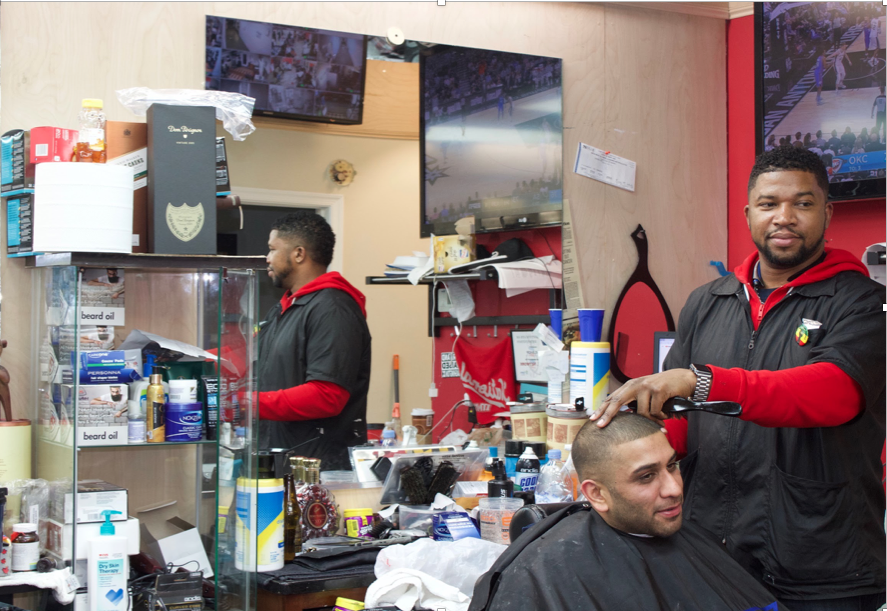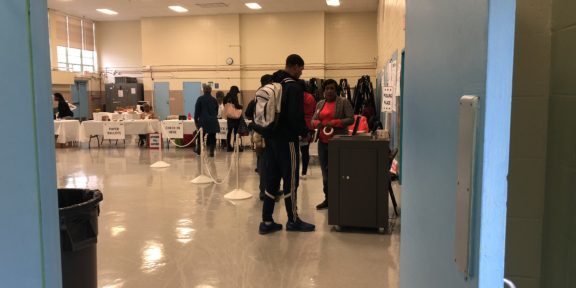Many Say They Aren’t Ready to ‘Age Out’ of System at 21
The readiness of District youth to leave the foster care system was a major issue at a recent council hearing on youth issues.
The Foster Care Campaign, which is seeking council support for a transition center, testified that the majority of youth who “age out” of the system are not ready to move from foster care to independent adult life.
“Those youth acknowledged that they lacked important skills such as opening a bank account, finding housing and getting a job,” said Ravon Stewart, as he presented the findings of his group to Council Chairman Vincent Gray. “Many said that they were not ready to age out of the system.”
On a series of boards, the group displayed photos of foster care youth who were asked one simple question: “Were they ready to age out?” Stewart highlighted some of the individuals featured on the board. One foster care youth named Vincent, who had just received his GED, said that a youth transition center could help with money management, according to Stewart.
The Foster Care Campaign is a program under the Young Women’s Project, an organization that supports teenage women from the District and trains them in community outreach and development. The group testified with hopes that the council would support its proposal for a youth transition center, or programs sponsored by the District government and the District’s Child and Family Services Agency (CFSA) that would aid foster care youth in transitioning to independent adult life.
“We have a lot of people who are not in foster care that can’t make it at 21,” Council Chairman Gray acknowledged. “We see a lot of young people at 21 or 22 going back home after college.”
CFSA provides foster care services to youth who cannot depend on the support of parents or guardians, who have become wards of the state or who have been removed from their parent’s guardianship because of unsafe conditions.
Older youth, or youth who cannot be placed in permanent family homes, are usually placed in independent living homes, or group homes, that are sponsored by the agency. At independent living homes, displaced teens or foster care youth receive support while making the transition to independent adult life. They can usually stay there rent-free as long as they work, go to school or attend counseling programs. Many youth make it to college through the program. When these youth reach 21, they age out of foster care and are required to leave the system. The District is one of few jurisdictions in the country that allow youth to remain in foster care until 21 years of age. Most jurisdictions allow young people to stay in care only until the age of 18. In addition, the District provides independent living services to foster care youth from ages 18 to 21 through its Center of Keys for Life program.
The Foster Care Campaign wants foster care services to be extended to youth beyond 21 years of age for those who are still in need of services, or having trouble transitioning to independent adult life.
Council member Yvette Alexander agreed with the group. “It’s good to know that you have that security even if you need help at 30,” Alexander said.
Daniel McCowan, one of the youths who testified, turns 21 in six months and will officially age out of the system. He has been in foster care since 9 years old after his mother died of AIDS and his grandmother died of a heart attack.
McCowan said his sibling was adopted through closed adoption, and he can’t get the information that he needs to link up with the sibling. This leaves McCowan without any immediate family members to look to for support as he transitions to independent adult life.
Gray expressed his esteem for the youth. “With having to do it without connection to your family, it’s hard enough, especially in the foster care system,” he said. “I have great admiration for you all.”
According to CFSA, on average 140 youth age out of the foster care system annually. That is roughly 26 percent of the foster care youth population ranging from ages 18 to 21. Only 60 of the 145 youth scheduled to age out of the system in 2008 were employed by the second quarter of the year.
Gray recommended that the group present before the council when it meets to consider the mayor’s budget for next year. A testimony there could potentially create a shift in funding from some programs or agencies to others that work to help ease the transition of foster care youth to independent adult life.
According to Feras Sleiman, a spokesman for the mayor’s office, plans are in the works for a youth transition center,” an inter-agency initiative between the CFSA and the D.C. Department of Employment Services. The project is on schedule for completion within the calendar year, Sleiman said.





